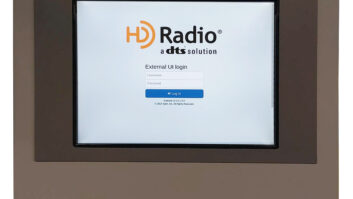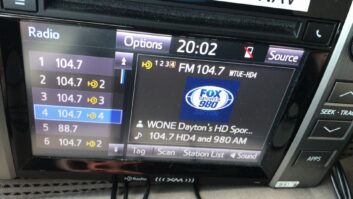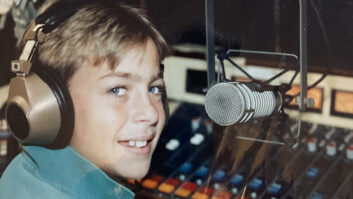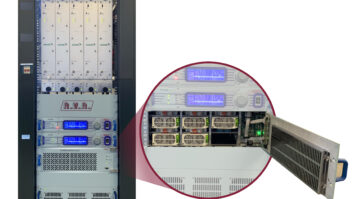PHILADELPHIA The pushing and pulling continues between members of the standards-setting National Radio Systems Committee and Ibiquity Digital Corp. over disclosure.
Tomorrow Radio Research AdvancesAlso at the NRSC meeting in Philadelphia, Harris, NPR and Kenwood presented an initial test progress report from its Tomorrow Radio field tests to the standards body.
As previously reported, testing was successfully completed at public radio FM stations KALW in San Francisco, KKJZ in Los Angeles, WETA in Washington and WNYC in New York in September. The project aims to determine whether splitting the channel of a station transmitting in HD Radio to create supplemental audio/data channels is feasible and whether such a system could withstand a mobile environment.
The companies had hoped to have a final report ready for the radio show, but representatives called the project “a work in progress.” The group needs to do follow-up testing with Ibiquity’s new HDC codec.
Participants drove about 5,000 miles during testing.
“We’re pleased to wrap up this leg of the project,” said Mike Starling, NPR’s vice president for engineering and operations. He said consulting engineering firm Hammett and Edison was still evaluating the results. An analysis and final report are expected in time for the NRSC’s meeting at the CES convention in January.
NRSC sources said they don’t think commercial radio broadcasters have fully thought about the implications should secondary and tertiary channels become possible for pubcasters using HD Radio.
— Leslie Stimson
While it’s not unusual for tensions to arise over what information should be shared and what should remain proprietary, sources said, the standards-setting process for IBOC is complicated by the fact that the technology already has been introduced into the marketplace.
Before the NAB Radio Show, the NRSC identified areas in which it needs more information from Ibiquity for its standards-setting process, including patents, data transport and the new codec. The goal is to compile enough information for “someone skilled in the art” to build compliant devices, sources said.
Ibiquity turned over a list of approximately 70 granted patents relating to its IBOC transmission system. The technology developer and the NRSC continue to discuss what further information is needed as the sides try to reach agreement.
Several sources stressed that neither wants the process to stop again, referring to the several-month hiatus while Ibiquity resolved its codec problem for AM by switching codecs.
NRSC members say they also want to make sure their standards for different technologies are current.
RBDS re-ignited
At the NRSC meeting in Philadelphia, members also re-established the Radio Broadcast Data System Subcommittee. Entercom Vice President of Engineering Marty Hadfield said the group would review the U.S. standards and make sure they are up to date.
“We know we have some elements that don’t fit in from the original design,” said Hadfield. For example, there were 20 formats when RBDS appeared in radios in this country about 10 years ago; now there are roughly 40.
Entercom uses RBDS on all of its FM stations. Hadfield cites several reasons for renewed interest in the technology, which allows stations to incorporate inaudible signals into broadcasts on the 57 kHz FM subcarriers to control what users see on radios enabled with the technology.
More car radios are equipped with RBDS capability than 10 years ago; and now, more stations have hard — drive computer systems that they can use to configure their Web — based networks to edit or schedule the text messages that RBDS-enabled radios receive.
The first meeting for this new subcommittee is slated for Nov. 6.
The NRSC also is re-focusing on AM standards. It’s been five years since the NRSC has reviewed the RBDS standard for this country and 10 since it has reviewed some of the AM broadcasting standards. The NRSC created an AM subcommittee to review standards for AM pre-emphasis/de-emphasis and two other standards for occupied bandwidth. No chairman had been selected by presstime.












